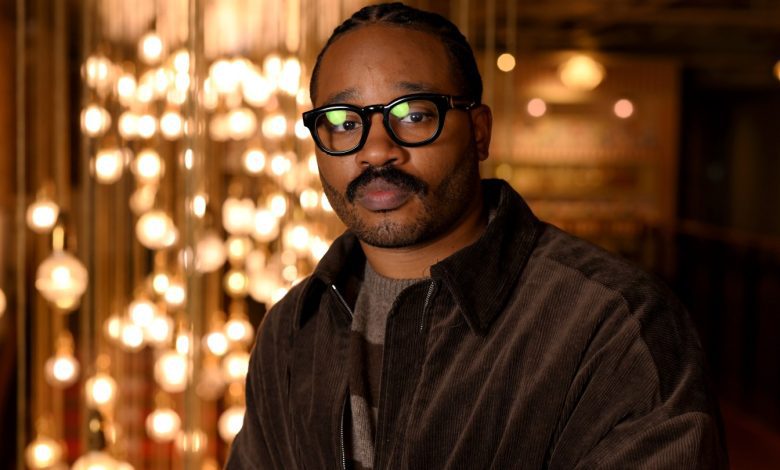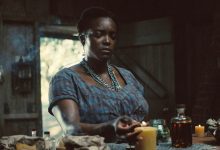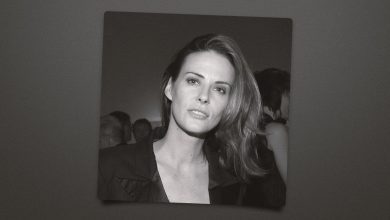Ryan Coogler, More Directors on Hot Streaks

One question that came to mind the first time I saw the electrifying Sinners was, “Does Ryan Coogler ever miss?”
Since making a splash in 2013 with his Sundance-winning debut Fruitvale Station, one of the most shattering screen depictions of excessive force in police killings of unarmed Black Americans, the writer-director has consistently delivered. He hatched new life out of a moribund franchise with the Rocky spinoff, Creed; brought nobility and soul to the MCU with Black Panther and its sequel; and with Sinners, his first feature not based on factual events or existing IP, he shook off genre constraints, using horror to reflect the struggle for freedom of an oppressed people.
Few filmmakers can boast an unblemished track record like Coogler’s. But as we head into an Oscar season that judges the year’s work, we find ourselves awash in movies from seasoned directors with stellar reputations — at least nine are in contention — some of them meeting expectations and others falling short. So what accounts for the sustained excellence of certain directors while others stumble?
Luck, talent and strong material obviously are key requirements. Smart casting is another. Undiminished curiosity, passion, drive, imagination and clarity of vision are probably high on the list of essential factors. Some directors stay in their lanes, sticking to the stylistic and thematic traits that have defined them. Others shake it up by switching genres, never playing it safe.
One veteran who maintained momentum this year is Kathryn Bigelow, returning to features after an eight-year absence with A House of Dynamite, which showed no rustiness in its command of the taut, visceral suspense that had distinguished The Hurt Locker, Zero Dark Thirty and Detroit.
While Inherent Vice was an acquired taste and Licorice Pizza, for this critic, was slightly compromised by a baggy second act, few could argue that Paul Thomas Anderson has remained one of our most distinctive and adventurous storytellers for almost three decades. Topping the mid-career peak of the exquisite Phantom Thread seemed a monumental climb, but in One Battle After Another, he makes the virtuoso art of shaping coherence out of chaos look effortless.
Hot streaks are hard to maintain, as evidenced by Luca Guadagnino’s misstep this year with the instantly dated cancel-culture cringe-fest, After the Hunt. I sat through that butt-numbing two-and-a-quarter hours thinking, “Can this really be the same director who was on such a roll with Bones and All, Challengers and Queer?” But even gifted artists have occasional off days. Perhaps Guadagnino was seduced by what looked like a serious awards contender thanks to Julia Roberts’ powerful lead role?
Kelly Reichardt is a critics’ darling whose stylistic and thematic groove has never wavered as she continues to explore rewarding byways. Reichardt’s films might swerve into minor-key comedy or suspense, but they have remained true to her voice, with a contemplative minimalism that carries through from her 1994 debut, River of Grass, to this year’s gorgeous, funny-sad ‘70s art heist tale The Mastermind.
The hot streak has a long history in modern Hollywood. Yawning through the toothless remake of The Hand That Rocks the Cradle I recalled Curtis Hanson’s rivetingly juicy 1992 film, which kicked off a remarkable 10-year run that included The River Wild, L.A. Confidential, Wonder Boys and 8 Mile.
A handful of maestros who emerged out of the New Hollywood of the 1970s have yielded one or more hot streaks over their lengthy careers, the late Hal Ashby, Martin Scorsese and the dependably great Steven Spielberg as prime examples. The early-career excitement Steven Spielberg generated with Duel, The Sugarland Express, Jaws and Close Encounters of the Third Kind came to a thudding halt with the frenetically busy, hopelessly bloated war comedy, 1941. But when you follow with Raiders of the Lost Ark and E.T., who even remembers?
And with The Godfather, The Conversation, The Godfather Part II and Apocalypse Now, Francis Ford Coppola had perhaps the greatest five-year hot streak of all time. Even with some unequivocal subsequent misfires like Jack, Youth Without Youth and last year’s disappointing big swing, Megalopolis, no one can dispute the greatness of a filmmaking visionary who spawned such a rapid succession of classics.
Surprisingly, while The Bling Ring has plenty of detractors (I’m not one of them) and her films are smaller in scope, Sofia Coppola might be considered more of a sustained hot-streak director than her dad. Like Reichardt, her films spin a robust stylistic and thematic thread — almost all of them attuned to the inner lives of young women. (This season she has her first documentary, about Marc Jacobs.)
One of the most impressively eclectic hot streaks in film history was Peter Bogdanovich’s transition from critic to director with the sniper thriller Targets, the evocative small-town coming-of-age drama The Last Picture Show, the reinvigorated screwball comedy What’s Up, Doc? and the bittersweet Depression-era road movie Paper Moon. But three expensive flops followed, Daisy Miller, At Long Last Love and Nickelodeon, undermining Hollywood’s confidence in the erstwhile wunderkind and showing how hard it is to maintain a hot streak.
The Guillermo del Toro faithful likely consider him incapable of making an uninteresting movie. I can mostly get on board but would argue the extravagant fantasist’s baroque aesthetics can get in the way of emotional involvement, notably in Crimson Peak and Nightmare Alley.
With Frankenstein, del Toro cooked up a grand-scale project whose beating heart is a worthy match for its sumptuous design elements, effectively downplaying the horror to favor romance, tragedy and a moving reflection on what it means to be human.
But some of the best hot-streak directors this season are working far from these shores. Brazilian maverick Kleber Mendonça Filho’s exuberantly idiosyncratic ‘70s political thriller, The Secret Agent, is the work of a singular artist with a flawless track record over four narrative features and one elegiac documentary, Pictures of Ghosts, an unofficial companion piece to the new film.
Joachim Trier’s career has also gone from strength to strength, as evidenced by his following the radiant romantic drama The Worst Person in the World with an anatomy of a family as tough, tender and playful as this year’s Sentimental Value.
And with his intense Palme d’Or-winning thriller It Was Just an Accident, Iran’s Jafar Panahi has put one more jewel in a career of crowning achievements. Dogged determination might be his films’ distinguishing trait — resilient defiance against an authoritarian regime that has spent 25 years doing all it can to silence him. The hot streak as an act of political protest makes for a uniquely powerful statement.
HiCelebNews online magazine publishes interesting content every day in the movies section of the entertainment category. Follow us to read the latest news.





